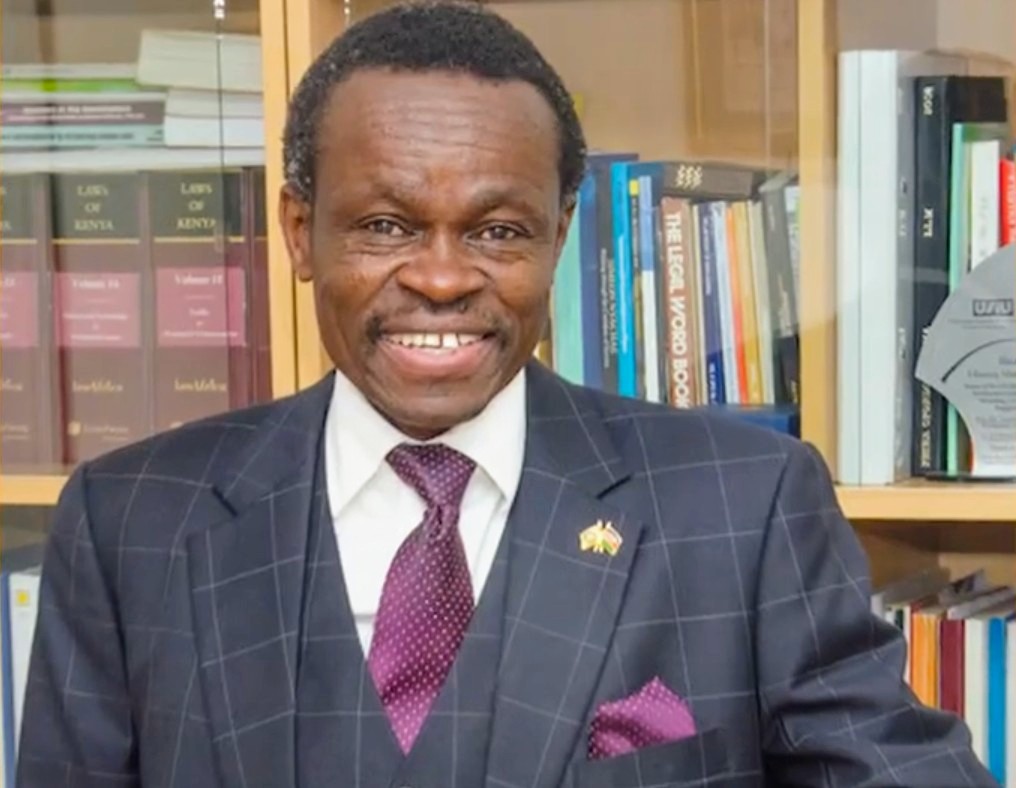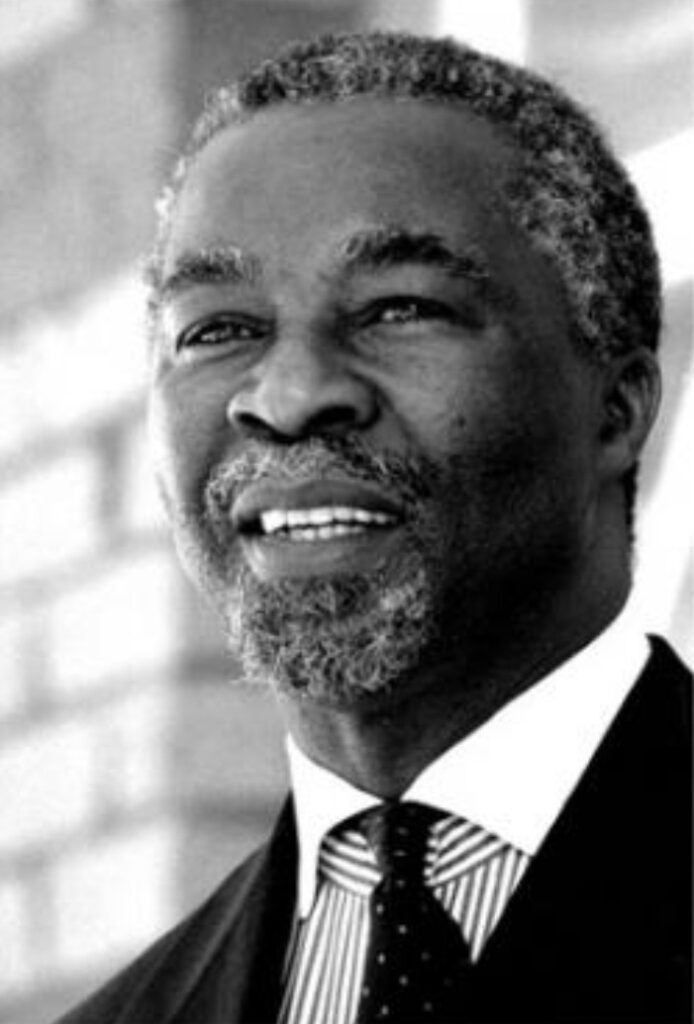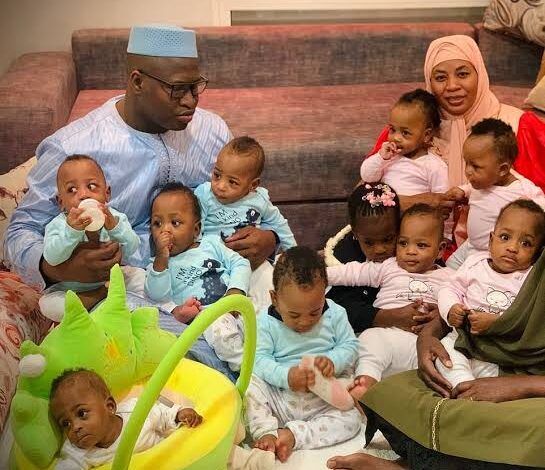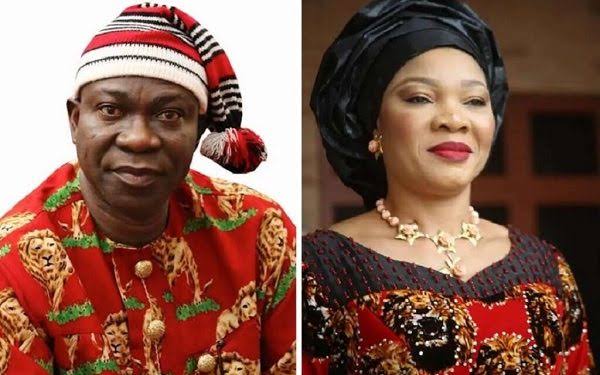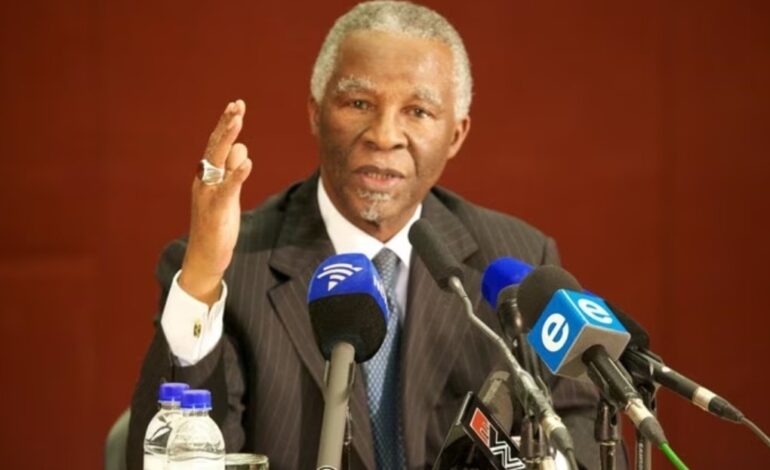
Thandisizwe Mgudlwa – CAPE TOWN, South Africa
In the past couple of years, the name of former president Thabo Mbeki has re-emerged as a possible solution for fixing the South African economy and spreading the wealth of the country to all its people.
Mostly, this assertion has been shared in the public domain by independent experts and commentators. Rather, the goal would be to look into whether or not the SA’s governing party, the ANC, can dig deep to their most intellectually capable leader in the modern era, Mbeki, to contribute to the renewal of the organization and that of the country.
Whether or not one may like Mbeki, or one did not agree with his politics and economics for that matter, Mbeki’s legacy remains part of our culture and possibly the long term future of the South Africa. His capacity in planning, organizing, strategy and tactics led to acommodity boom on a scale unprecedented in SA.
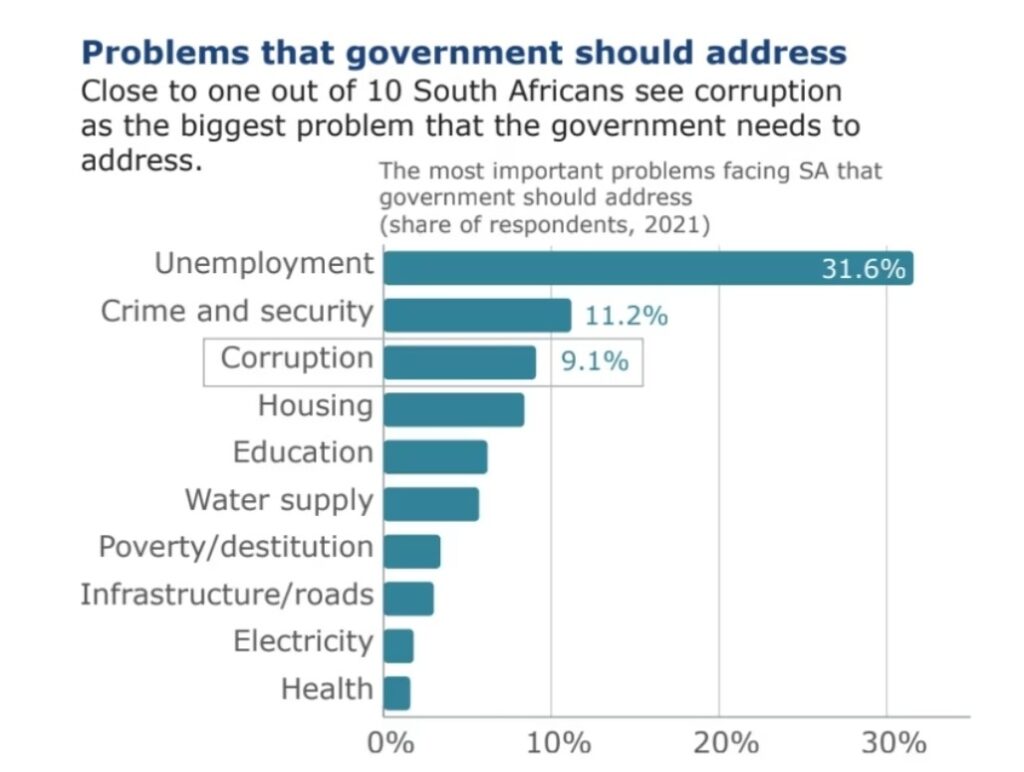
Under his reign, South Africa’s economy grew by 5%. At some stage the country’s economic growth had reached the 6% mark. This very much led to more investments into South Africa, cupping the unemployment stats by quite remarkable percentages.
Sadly, this would later be reversed once he left office. Many economists and analysts still credit much of this growth to the increase of employment in the middle sectors, which up until Mbeki’s tenure was difficult to come by.
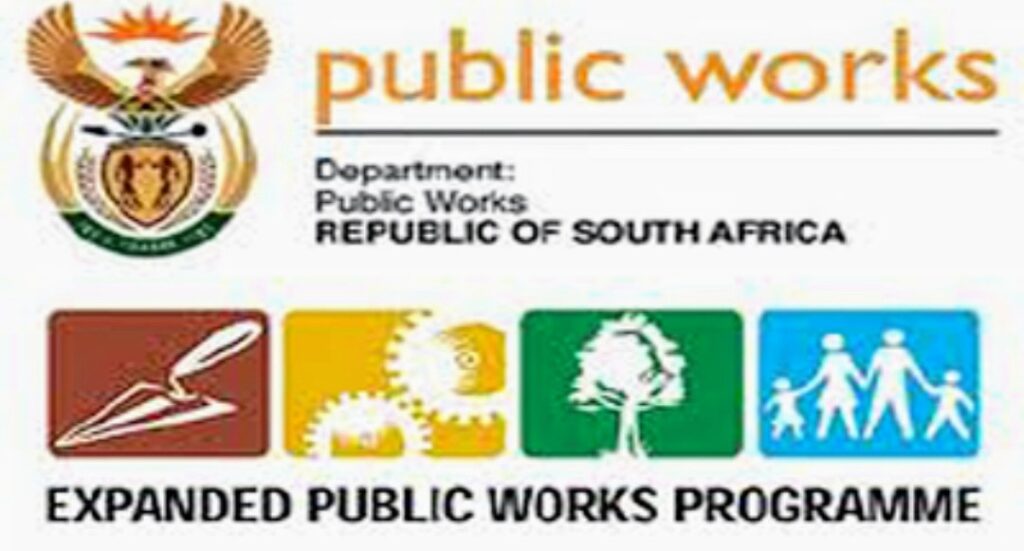
The Expanded Public Works Programme (EPWP) solidified job creation efforts by the democratic government. Various other programmes like Community Development Workers, took development to new heights and positioned South Africa as a country that was on its way to becoming a real ‘Super Power’ in Africa and the rest of the world.
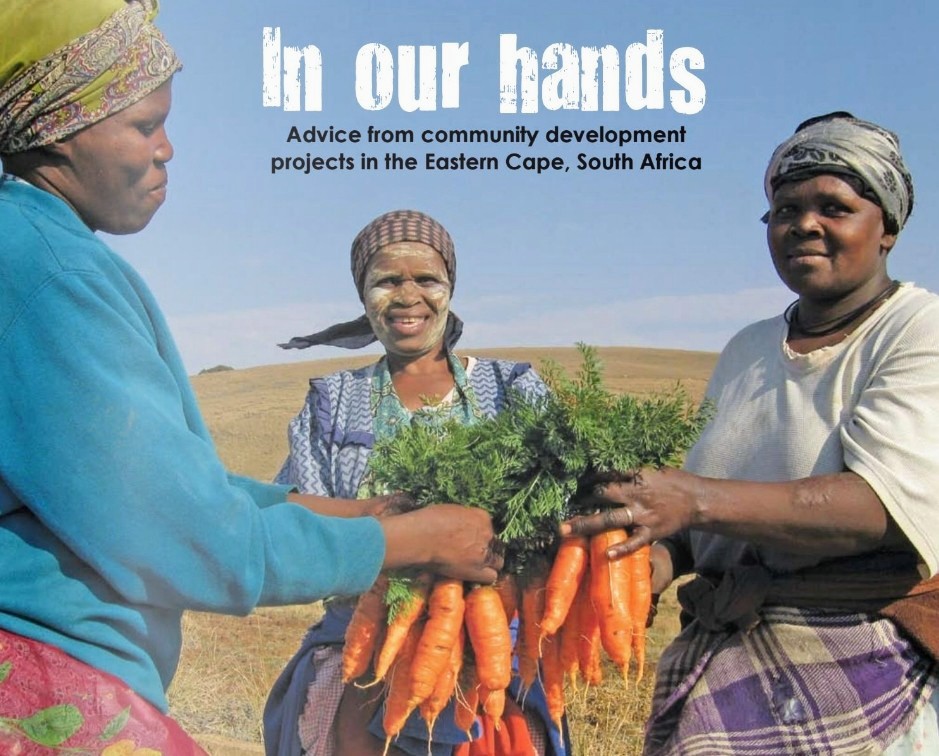
Another legacy of Mbeki is the Vukuzenzele campaign, that called on all people to wake up and do things for themselves rather than depending on the government for everything. In 2002, Eskom under Mbeki’s reign was bestowed with an international award as the best runcpower utility group in the world. Commenting generally on Mbeki’s leadership and vision, Khisimusi Siphoa SASCO activist recently wrote: “Going through former president Thabo Mbeki’s 2007 political report at Polokwane, he said nothing but the vicious truth. Our anger, impatience & frustration engulfed many of us that we couldn’t listen to him properly at that time.
“The distinguished African scholar Professor Patrick Lumumba remarked, “Thabo Mbeki should have been afforded more time to lead, because he had a clear direction as to where South Africa and Africa should go, South Africa lost a man in him.
Khisimusi Siphoa, SASCO activist
“Many other similar comments have been made about this visionary, intellectual, philosopher-king, economist and giant of Africa. Mbeki spearheaded the transition from the Organisation of African Unity (OAU) to the African Union (AU).
The New Partnership for Africa’s Development (NEPAD), which is responsible for socio-economic development framework for Africa; and the African Peer Review Mechanism (APRM) are the creations of Mbeki’s. There are many other achievements that came with Mbeki’s leadership which gave birth in South Africa, Africa and elsewhere, including the creation of a SA government’s comprehensive programme to tackle HIV/AIDS; and is still credited by many experts on the subject as the best in the world.
On Zimbabwe 🇿🇼, Mbeki had little choice but to go along with the stance taken by both the SADC and AU. Anything else would have seriously compromised SA’s position on the continent and led to SA losing any influence it could have had on African matters. Mbeki’s vision and his pioneering of an African Renaissance, led tothe successful bidding to host the 2010 FIFA World Cup.
In acknowledging Mbeki’s contribution, Business Day newspaper said in its editorial opinion, “The fact is that it was the former president’s vision of an African renaissance, with South Africa leading the charge to prove to the rest of the world that the continent was not destined to disappoint in perpetuity, that resulted in us persisting in our bid to host the tournament.
“The Citizen newspaper in Johannesburg commented: “Now we know he was correct in that assessment of South Africa’s ability to stage the greatest show on earth. “Under the editorship of Mondli Makhanya, the Sunday Times ran an editorial titled: “Mbeki’s legacy, our legacy”.
At a time when South Africa is experiencing its worst rolling blackouts, with unemployment, poverty and inequality refusing to decline, SA must look at the possibility of allowing Mbeki to contribute to the renewal of the nation’s fortunes.
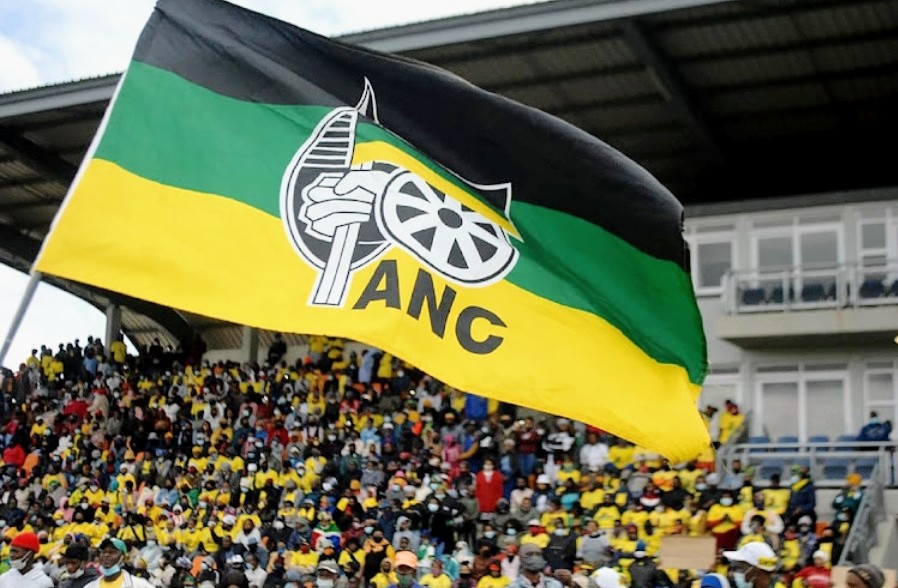
This, he should be encouraged to do more with his excellent track record in government. He can especially be utilized to fill in the leadership vacuum and providing us with some lessons on nationhood and much more. If the ANC thinks Ramaphosa is their best bet for an election victory, it must think harder. Because if things continue the way they are going, there might not be an ANC to vote for, and even South Africa to save by 2024.
The ANC, must also look at the fact that Ramaphosa has been a liability if elections are anything to go by. Even by-elections under Ramaphosa, don’t inspire confidence than what the ANC enjoyed under Mbeki. And that ‘Farmgate’, has a disturbing possibility to come back and haunt this once proud liberation movement.
While Mbeki’s track record in government should give us confidencethat his been there, seen it and done well before. Mbeki has the capacity to bring South Africa back to economic boom times. I recently asked a government official who has worked in government since 1994, who she thought was the best nation’s leader since the dawn of democracy in South Africa and before Ramaphosa. Without any hesitation, she immediately responded, “it’s Thabo Mbeki.
“Many of us at the government still call him Mr. President.” “The guy is brilliant.” “He’s a statesman.” she added. Could the ANC have forgotten that the only time it received a two-thirds majority was in 2004 under Mbeki?
Mgudlwa is an award-winning journalist


